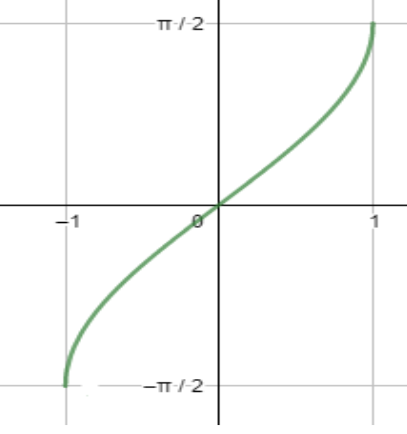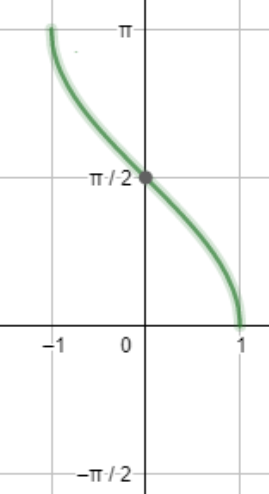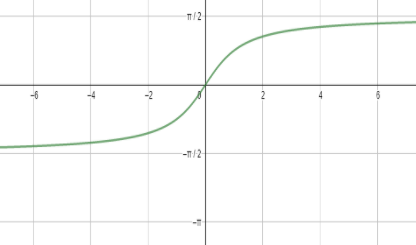Question
Question: If we have a inverse trigonometric equation as \(\sin \left( {{\sin }^{-1}}\dfrac{1}{5}+{{\cos }^{-1...
If we have a inverse trigonometric equation as sin(sin−151+cos−1x)=1 , then find the value of x.
Solution
Hint: The above question is related to inverse trigonometric function and for solving the problem, you need to use the property that sin−1x+cos−1x=2π.
Complete step-by-step solution -
Before starting with the solution to the above question, we will first talk about the required details of different inverse trigonometric ratios. So, we must remember that inverse trigonometric ratios are completely different from trigonometric ratios and have many constraints related to their range and domain. So, to understand these constraints and the behavior of inverse trigonometric functions, let us look at some of the important graphs. First, let us see the graph of sin−1x.

Now let us draw the graph of cos−1x .

Also, we will draw the graph of tan−1x as well.

Now moving to the solution to the above question, we will start with the simplification of the equation given in the question.
sin(sin−151+cos−1x)=1
Now we know that the value of sine function is 1, if and only if the angle is of the form 2nπ+2π , where n is a integer. We also know that the range of sin−1x is [2−π,2π] and the range of cos−1x is [0,π] , so the maximum and minimum possible values of sin−1x+cos−1x are 23π and 2−π , respectively. So, the only possible value of sin−151+cos−1x=2π .
Now, from the above results we know that sin−151+cos−1x=2π . We also know that for any value of x lying in the domain, the value of sin−1a+cos−1a=2π . So, we can say that the value of x is 51.
Note: While dealing with inverse trigonometric functions, it is preferred to know about the domains and ranges of the different inverse trigonometric functions. For example: the domain of sin−1x is [−1,1] and the range is [−2π,2π] .
